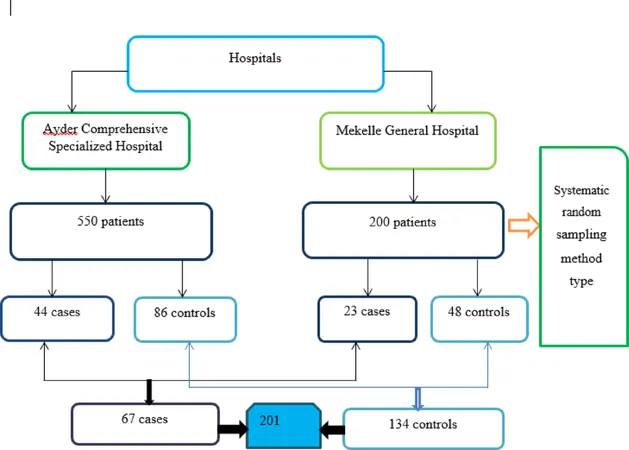
Unraveling the Links: Extrapyramidal Side Effects in Antipsychotic Patients in Ethiopia
2025-08-28
Author: Rajesh
Understanding Psychosis and Schizophrenia
Psychosis is a complex mental health condition that disrupts behavior, thinking, and perception. Afflicted individuals may experience both positive symptoms like hallucinations, and negative symptoms, such as emotional detachment and cognitive impairments. Schizophrenia, a severe form of psychosis, impacts around 1% of the global population and is a leading cause of long-term disability.
The Double-Edged Sword of Antipsychotic Medications
Antipsychotic medications are vital for managing schizophrenia, yet they often come with serious side effects known as extrapyramidal symptoms (EPS), which can develop mere days into treatment. Despite advancements with second-generation antipsychotics reducing these risks, EPS remains a significant clinical challenge, characterized by conditions such as Parkinsonism and akathisia.
What Are Extrapyramidal Side Effects?
EPS includes various motor symptoms, from uncontrollable muscle contractions called dystonia to the distressing restlessness known as akathisia. Research demonstrates that over 15% of patients taking antipsychotics may develop symptoms of Parkinsonism. In severe cases, conditions like tardive dyskinesia, which leads to involuntary movements and can persist even after stopping medication, are reported.
The Hidden Toll on Patients
Experiencing EPS can devastate a patient's quality of life, resulting in poorly managed mental health, increased hospitalization rates, and social stigma. These symptoms significantly hinder a patient’s adherence to treatment and overall recovery.
Key Predictors of Extrapyramidal Side Effects
Several factors contribute to the likelihood of developing EPS in patients on antipsychotics. Important predictors include female gender, older age, the potency of medication, concurrent use of other drugs, and a history of previous side effects. Notably, in Ethiopia, research on these predictors is limited, highlighting a crucial gap in mental health studies.
A Call for Research and Better Care
There's an urgent need for more comprehensive studies to explore the predictors of EPS among Ethiopian patients. Insights gained could empower healthcare professionals to design more effective interventions for those suffering from these debilitating side effects.
The Implications of Medication Compliance
Understanding EPS is vital for improving medication compliance and treatment efficacy. Factors like stigma and lack of social support can greatly influence patients’ attitudes towards their medication, often leading to relapses and worsening of their condition.
Concluding Thoughts: Towards Improved Mental Health Care
This study sheds light on the importance of recognizing and managing EPS in antipsychotic treatment. It encourages ongoing assessment by mental health professionals to enhance patient outcomes and quality of life. By identifying and addressing these challenges, the healthcare system in Ethiopia can move toward more holistic and effective psychiatric care.


 Brasil (PT)
Brasil (PT)
 Canada (EN)
Canada (EN)
 Chile (ES)
Chile (ES)
 Česko (CS)
Česko (CS)
 대한민국 (KO)
대한민국 (KO)
 España (ES)
España (ES)
 France (FR)
France (FR)
 Hong Kong (EN)
Hong Kong (EN)
 Italia (IT)
Italia (IT)
 日本 (JA)
日本 (JA)
 Magyarország (HU)
Magyarország (HU)
 Norge (NO)
Norge (NO)
 Polska (PL)
Polska (PL)
 Schweiz (DE)
Schweiz (DE)
 Singapore (EN)
Singapore (EN)
 Sverige (SV)
Sverige (SV)
 Suomi (FI)
Suomi (FI)
 Türkiye (TR)
Türkiye (TR)
 الإمارات العربية المتحدة (AR)
الإمارات العربية المتحدة (AR)